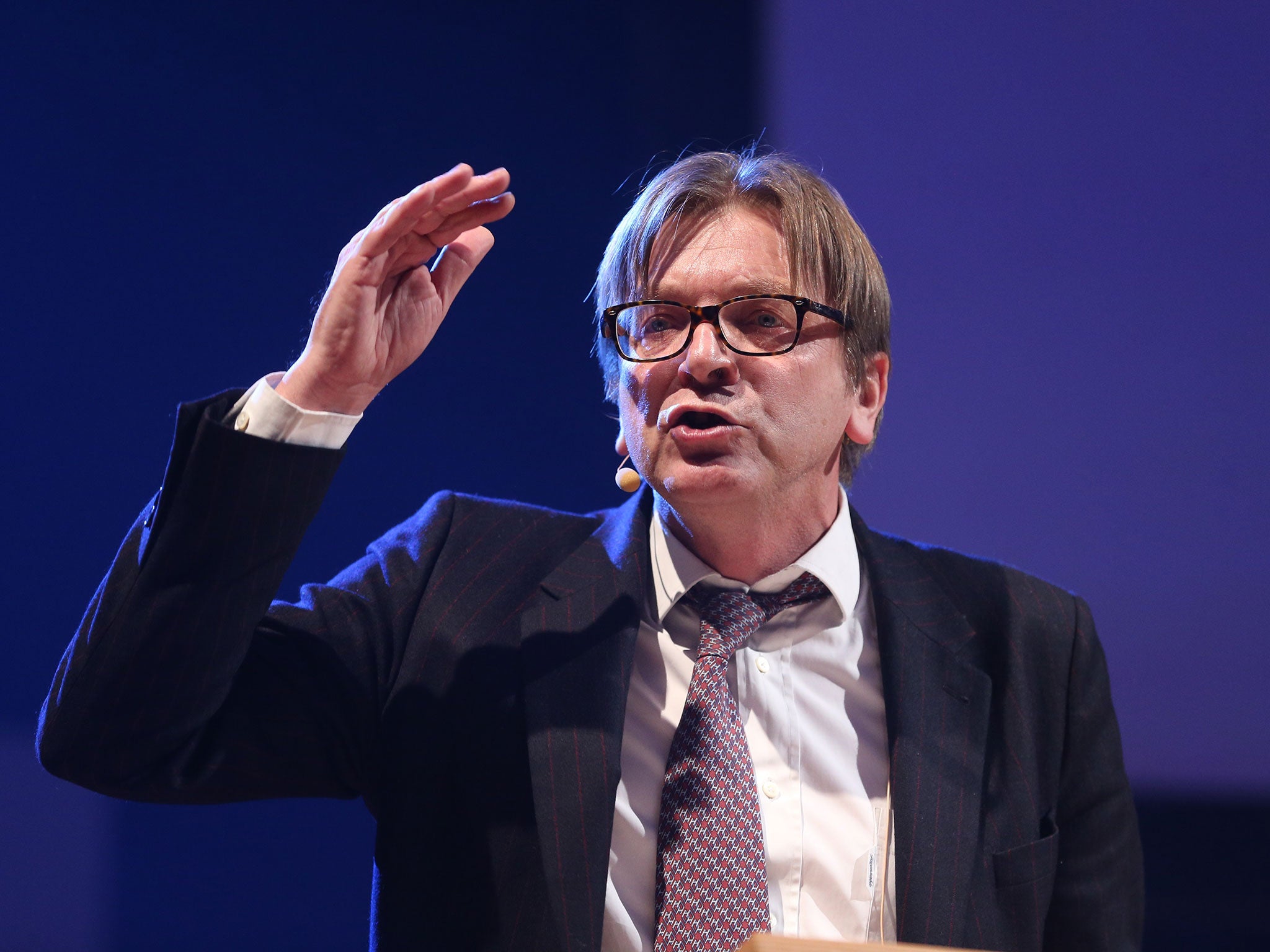EU's chief Brexit negotiator says Theresa May's promised trade deal by 2019 is 'impossible'
Guy Verhofstadt also suggests the British people voted to leave the EU because of a Little Englander mentality

Your support helps us to tell the story
From reproductive rights to climate change to Big Tech, The Independent is on the ground when the story is developing. Whether it's investigating the financials of Elon Musk's pro-Trump PAC or producing our latest documentary, 'The A Word', which shines a light on the American women fighting for reproductive rights, we know how important it is to parse out the facts from the messaging.
At such a critical moment in US history, we need reporters on the ground. Your donation allows us to keep sending journalists to speak to both sides of the story.
The Independent is trusted by Americans across the entire political spectrum. And unlike many other quality news outlets, we choose not to lock Americans out of our reporting and analysis with paywalls. We believe quality journalism should be available to everyone, paid for by those who can afford it.
Your support makes all the difference.The European Parliament’s chief Brexit negotiator has rubbished Theresa May’s pledge to deliver a new EU trade deal by 2019 as “impossible”.
Guy Verhofstadt also suggested the British people voted to leave the EU because of a Little Englander mentality. Yet he held out the prospect that Britain could choose to rejoin the bloc one day, saying, “That is always possible.”
In her Brexit speech earlier this month, the Prime Minister threatened to crash out of the EU with “no deal” if other leaders refused her demands.
However, a day later, she told MPs she would “deliver” an agreement by Brexit, to avoid inflicting punishing World Trade Organisation tariffs on businesses. “That’s what I’m committed to – and that’s what this Government is going to deliver,” she said, raising the stakes for the negotiations to come.
But Mr Verhofstadt, a senior MEP and former Belgian Prime Minister, dismissed the prospect, in an interview with Al Jazeera English. “That’s technically impossible,” he said, referring to the suggested two-year timeline.
EU leaders have insisted Britain must first agree to a suggested £50bn “divorce bill” – a payment for outstanding liabilities – under the terms of the Article 50 exit clause.
This year’s elections in both France and Germany are also expected to slow the Prime Minister’s hopes to start trade talks – which normally take many years to complete, regardless.
Although the European Commission will lead the talks from the Brussels side, the European Parliament must also ratify any agreement.
Ms May has threatened to make “other arrangements” if she fails to strike a fresh trade deal before Brexit – widely interpreted as a threat to slash taxes and regulations, to attract investment.
During the interview, Mr Verhofstadt also sought to emphasise that the rest of the EU would not be looking to punish the UK in the negotiations. However, “you can never have outside the European Union a better status than as member of the European Union”, he said.
On rejoining the EU, Mr Verhofstadt said: “They can always reintroduce a request for membership of the European Union. Certainly, we have enough experience to make it a little bit a faster process than what is normal.”
Asked about which issue drove 52 per cent of Britons to vote for Brexit last June, he replied: “Mainly the migration. It’s very clear.”
And, asked if xenophobia and a Little Englander mentality explained the Brexit vote, Mr Verhofstadt said: “That’s maybe a good explanation”.
The interview can be watched at www.aljazeera.com/upfront from 19:30GMT on Friday 27 January.
Join our commenting forum
Join thought-provoking conversations, follow other Independent readers and see their replies
Comments